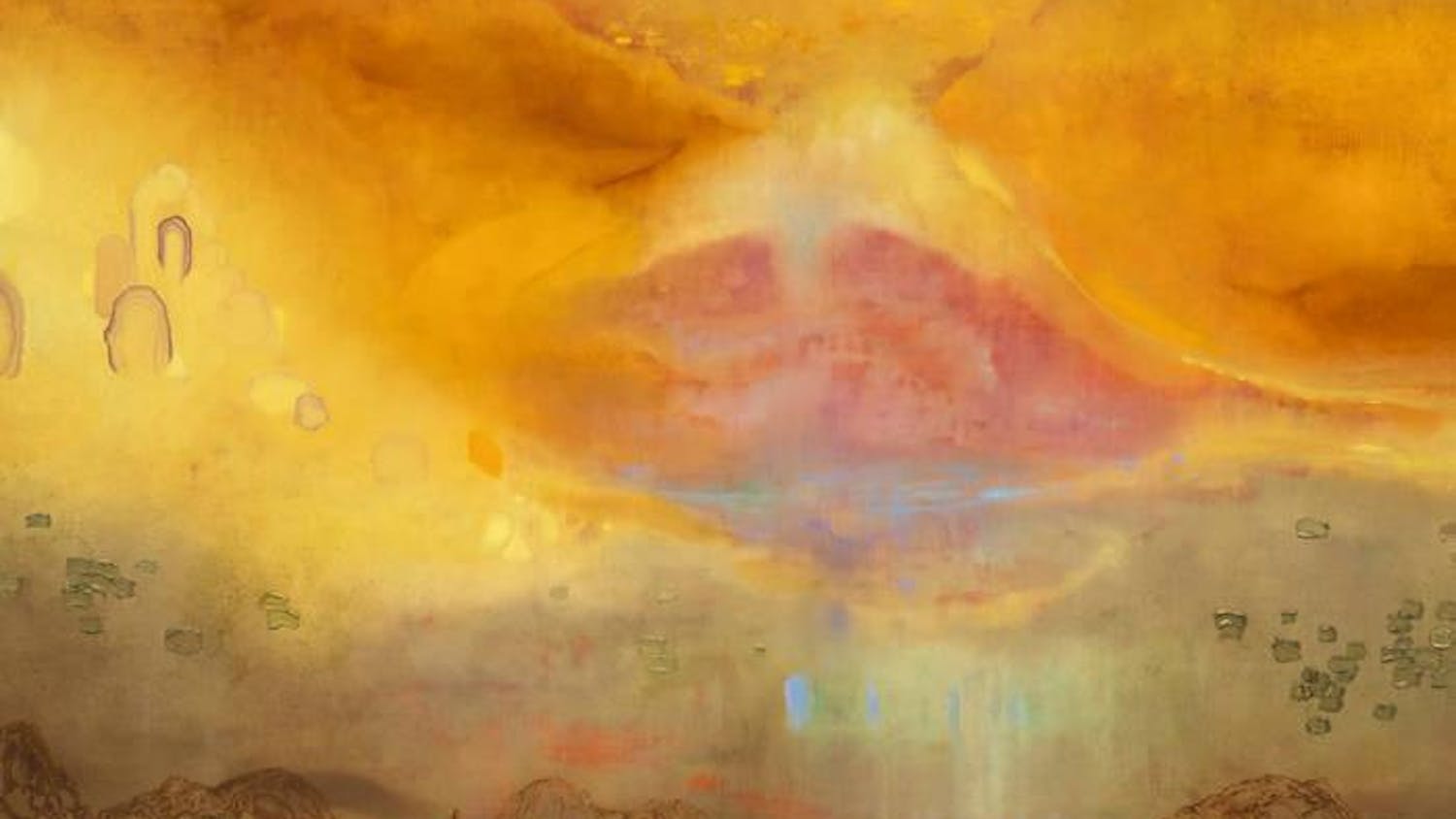Last year, some 50 years after its inception, heavy metal received its biggest publicity yet at the Summer Olympics. Performing alongside foreign superstars Lady Gaga and Celine Dion were France’s very own Gojira. The French mavericks held their own against pop music’s biggest names, performing a rendition of the revolutionary song, “Mea Culpa (Ah! Ça ira!)” alongside opera singer Marina Viotti. They later won a Grammy for Best Metal Performance for the song.
On July 26, 2024, the televised opening ceremony of the Paris Summer Olympics abruptly turned from the Seine to the Conciergerie, a former prison turned museum that once housed Marie Antoinette. From a window stands a headless figure in red, cradling a severed head in her arms. The camera zooms out to reveal towering walls, laden with many more headless women high above the river. The gates of the prison burst into flame, right in front of the pillars on which Gojira unleash their sonic assault. There they stand, hundreds of feet above the Seine, each on their own windowsill. Backing them is a three-hundred piece orchestra. And together they re-enact the French Revolution, with all the horror, smoke, fire and head-rolling of the real thing.
As with every subjection of extreme metal to the public, Gojira’s performance was met with heavy backlash and accusations of Satanism. Such criticism is an expected occupational hazard for any metal band that receives international exposure on a similar scale. As such, they were prepared. Frontman Joe Duplantier dismissed the critics in an interview with Rolling Stone: “It’s French history. It’s French charm, you know, beheaded people, red wine and blood all over the place — it’s romantic, it’s normal.”
Gojira formed in Ondres, France in 1996 as Godzilla, before changing their name to the original Japanese spelling for the name — “Gojira” — in 2001. By then, the band consisted of brothers Joe and Mario Duplantier on vocals/guitar and drums respectively, and lead guitarist Christian Andreu and bassist Jean-Michel Labadie. After experimenting with more traditional, technical death metal, the band found their own sound by the mid-2000s, boasting a wide range of musical influences including groove metal, progressive rock, post-punk and even psychedelia. To most casual listeners, their sound is instantly defined by its punishing heaviness. The band’s emphasis on clean studio production and textural experimentation lends itself perfectly to crafting the most immersive sonic experience possible. Everything they do sounds loud. Musically, Gojira’s progressive influences and technical mastery make for some mind-bending riffage. Their guitar parts are down-tuned, abrasive and often in odd time signatures, a blend of Sepultura’s caveman stomp and Morbid Angel’s neo-psychedelic sludge. Holding it all together is Mario Duplantier's unpredictable drumming, simultaneously laying down a foundation and fighting against it in a frenzy of polyrhythms, rapid double-bass and sheer aggression. Above it all are Joe Duplantier’s mammoth vocals, a wash of immutable rage that ebbs and flows. His lyrics center around spirituality, life and death and, most notably, environmentalism.
This theme culminated in their third studio album, From Mars to Sirius, a modern day metal masterpiece with the unifying concept of a dying planet and its resurrection through space travel. On their signature song, “Flying Whales,” Gojira offers an homage to the threatened animals, emphasizing the impending threat of ecological collapse and our dwindling connection to nature.
Four albums and 20 years later, Gojira won their first Grammy for “Mea Culpa.” While they are renowned within the metal scene, Gojira (and any of their peers, for that matter) had never broken into the mainstream until last year. Such is the fate of most metal bands, as proponents of a genre designed for a select minority — extreme music for extreme people. Yet, on several occasions since its inception, metal has reared its ugly, two-pronged head from the depths and scared the public shitless, only to be forgotten with the wicked winds of change generated by the record industry. In 1994, Pantera became the heaviest band to ever land the illustrious Billboard No. 1 with Far Beyond Driven. That same year, Jim Carrey brought Florida death metal titans Cannibal Corpse onto Ace Ventura for a hilarious cameo. In 2022, metal saw one of its biggest resurgences yet, with Stranger Things’ use of Metallica’s “Master of Puppets” that launched the song onto the Top 40, 36 years after it was recorded.
Obviously, metal is still far from mainstream. And perhaps that was never the goal in the first place. Rather, the issue lies within the public’s perception of the genre. The view that the genre is evil, unnecessary and talentless lends itself to its general dismissal as an art form. Sure, metal bands are starting to win Grammys. They even have their own category now. Metallica, the biggest metal band in the world, has won ten Grammys since the ’90s. And now, some 30 years later, Gojira has won. And as they walked up to claim their award they were played onto the stage by … Metallica’s “Enter Sandman?” And Spiritbox’s frontwoman Courtney LaPlante was mistaken for fellow nominee Poppy at the red carpet (she played along pretty well). As much as things have changed, metal is still far from being taken seriously.
As much as I love to complain, I can’t deny that the world is a pretty great place for metalheads today. People say rock/metal is dead. No, it isn’t. The genre is alive and well. My favourite bands are still touring. Technology allows me to listen to whatever I want, whenever I want. Sure, metal is misunderstood by the masses and any attempts at breaking through generally result in bland, derivative music spearheaded by false prophets carrying unlit torches in the name of a music they don’t understand. But maybe that’s how it’s meant to be. Metal thrives in its natural habitat: underground. As long as someone out there is enjoying the music, it doesn’t matter whether or not the public recognizes it. It is alive and well.
“Jazz isn’t dead, it just smells funny.” - Frank Zappa
Josh Yiu is a sophomore in the College of Agriculture and Life Sciences. He can be reached at jy793@cornell.edu.











